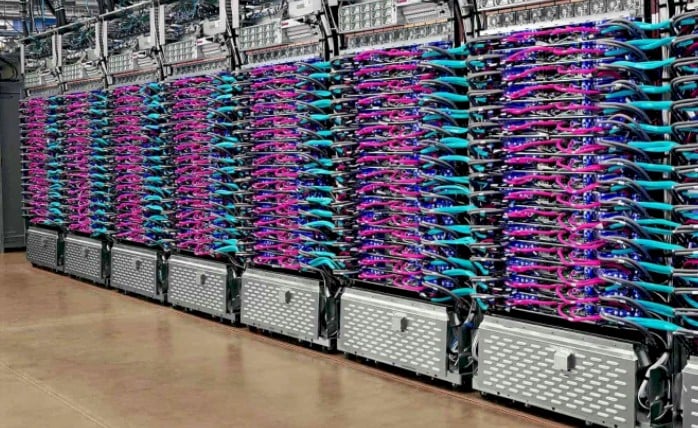After overcoming the security protocols implemented by Big G, a former Google employee is facing allegations of pilfering the tech titan’s artificial intelligence (AI) industry secrets while concurrently being employed by two Chinese firms.
The lawsuit, filed by the US Department of Justice, identifies Linwei Ding, also known as Leon Ding, asserting that his role at Google encompassed developing software to optimize TensorFlow for machine learning, AI software, and other essential functions for Google and its clients on Google Cloud.
Hailing from China, Ding had access to confidential Google blueprints detailing data center infrastructure, hardware and software systems, AI platforms, as well as the associated applications and AI models.
The prosecution claims that Ding duplicated Google source files onto Apple Notes on his Google-issued MacBook, then converted these notes into PDFs, which were subsequently uploaded to his personal Google Cloud account.
Allegedly, Google’s data-loss prevention mechanisms failed to detect this approach promptly, allowing Ding to exfiltrate over 500 files between May 2022 and the corresponding period in 2023.
These documents reportedly contain intricate details about the design and performance of GPU and TPU chips and systems, the software facilitating communication and task execution by these chips, and the technology orchestrating thousands of chips into a cutting-edge machine learning and AI-capable computer.
As per the Justice Department, Ding was approached by Taiwanese AI firm Beijing Rongshu Lianzhi Technology Co Ltd in June 2022 and agreed to serve as their Chief Technology Officer. While still working at Google, Ding traveled to China in October 2022, participating in fundraising activities for Rongshu. By April 2023, investors were informed of his appointment as CTO.
Subsequently, Ding founded his AI enterprise, Shanghai Zhisuan Technology Co. Ltd., in China, claiming its proficiency in accelerating machine learning tasks, particularly training large AI models using supercomputing cards.
Ding purportedly permitted another Google employee to use his badge to access office premises, creating the illusion that he was present in the US while operating from China. Google was reportedly unaware of Ding’s involvement with Rongshu and Zhisuan or his activities in China.
In March 2023, Ding left China and returned in November of the same year, stating his intention to enhance Zhisuan’s knowledge of Google’s AI infrastructure for Chinese investors.
Allegedly, Google detected Ding uploading additional stolen files to a Google Drive account in December 2023, while he was employed by a prominent Chinese internet company. Ding justified this as documenting his work but failed to disclose his association with Zhisuan or Rongshu.
Following this discovery, Ding resigned on December 26. Google later uncovered another employee using Ding’s staff ID badge through surveillance footage and became aware of Ding’s investment presentations as Zhisuan’s CEO.
On January 4, Ding’s access to Google systems was revoked after his computer malfunctioned. Subsequently, the FBI launched an investigation, uncovering the 500 documents Ding had uploaded to the G-Cloud through a subpoena.
Ding was apprehended in Newark, California, on March 6, and currently faces four charges of trade secret theft. The DOJ’s statement emphasizes the US government’s commitment to combatting intellectual property theft, with Attorney General Merrick Garland underscoring the protection of advanced technologies vital to national security.
In light of the lapses that allowed Ding’s activities to go unnoticed for six months, questions arise about Google’s security measures. The company asserts that stringent safeguards are in place to safeguard sensitive information and trade secrets, highlighting their collaboration with law enforcement to address the breach.
The Register has expressed surprise at the reported security gaps and has sought clarity from Google regarding any enhancements to their information security protocols.









